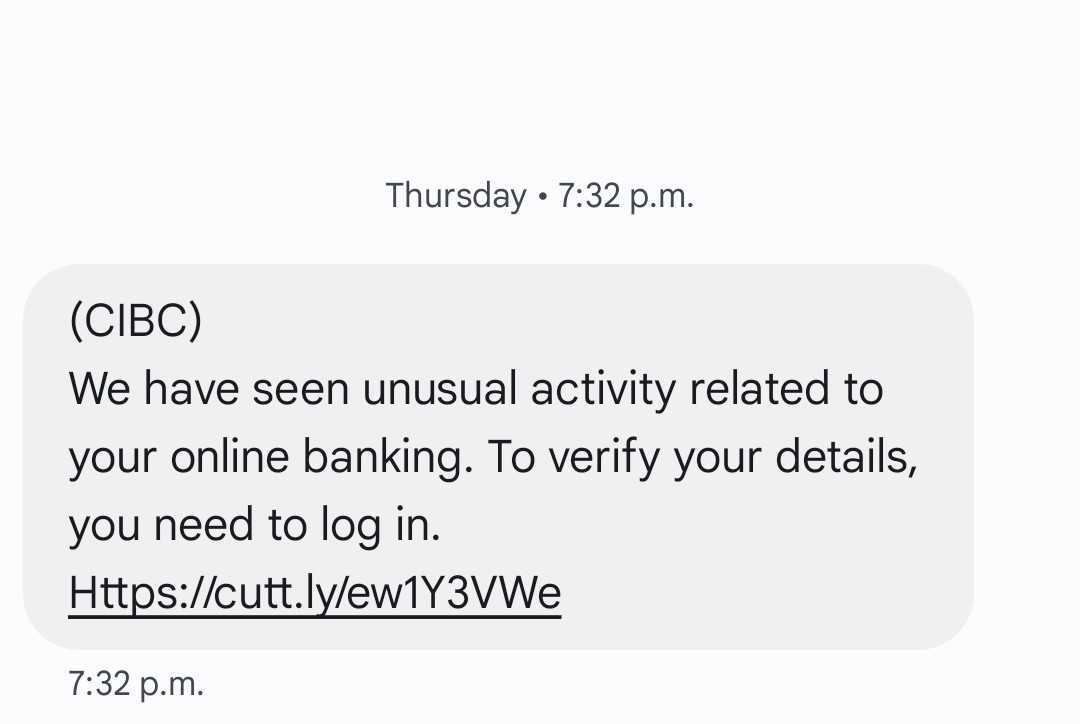New scams to be warned about this week in Ontario
Published March 9, 2024 at 5:30 pm

Scams are a year-round nuisance with more sophisticated variations popping up every few weeks. However, the end goal for most fraudsters seems to remain the same: target vulnerable individuals and steal funds or personal information. Here are the latest scams circulating in Ontario.
Package “temporary hold” scam

People awaiting package deliveries who receive text notifications of delays may be tempted to speed up the process by following message prompts, unaware they could be walking into a scam.
In this scam, fraudsters imitate the postal service DHL and advise the recipient that their package has arrived but has been placed on hold. The recipient is then asked to follow the link for further details.
According to the Canadian Anti-Fraud Centre (CAFC), this is an example of “smishing,” a variation of phishing schemes.
Fraudsters will pretend to be businesses, government agencies, banks or utility companies and urgently request individuals verify personal information such as name, address, birth date, banking account details, and Social Insurance Number (SIN). If provided, this information can be exploited for identity fraud.
DHL’s Canadian website says, “We send text messages using our shortcode 22345, so you can easily identify when the sender is DHL Express.”
When in doubt, customers are advised to delete suspicious-looking messages without opening them and report them to [email protected]
Bank “suspicious activity” scam

Bank scams— a common tactic used by fraudsters— often make people panic by suggesting their financial institution has been compromised, potentially resulting in the theft of information or funds.
In this case, the scammer pretends to be the financial institution CIBC and informs the recipient of some “unusual activity” related to their online banking. The recipient is then given a link that redirects them to a page to verify their account details.
CIBC reminds its clients that it will never send unsolicited texts or emails asking for banking information, personal information or passwords.
An extensive list of fraud emails and text messages sent to CIBC clients is listed on the bank’s website.
Job hiring scam

If you’re unemployed or considering a job change, receiving a text message from a recruiting firm offering a remote position might pique your interest. However, replying to the message may result in more loss than gain.
In this scheme, the fraudster poses as a recruiter for Flex Jobs. A quick Google search may lead you to the company website, giving the impression that the recruiter is indeed contacting you. However, you might want to do additional verification. A good idea would be to check the phone number from which the text was sent compared to the one listed on the official website. Discrepancies between the two could mean you are being duped.
The Canadian Anti-Fraud Centre offers additional tips to avoid falling victim to such scams:
- Don’t click on links from unsolicited messages
- Don’t download attachments from unsolicited messages
- Watch for spelling mistakes
- Don’t trust a message just because the email address looks legitimate; fraudsters can spoof the address
- Beware of messages claiming to be from the Government of Canada or a law enforcement agency; they will never contact you to offer funds via email or e-transfer
For more information and to report a suspected scam, see the Canadian Anti-Fraud Centre website here.
INsauga's Editorial Standards and Policies


